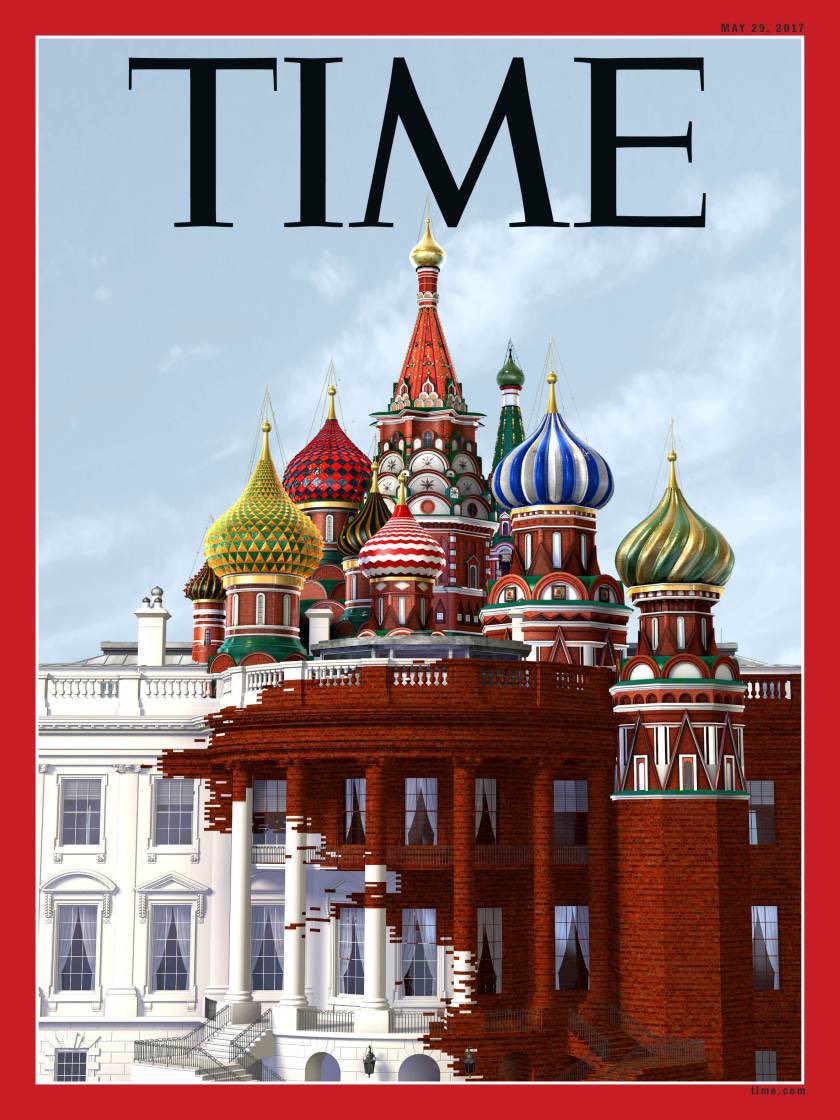And regarding these "supposed" links. Thank you New York Post. Spot on.
The left’s ridiculous double standard on spilling secrets
It may be too soon to tell whether Donald Trump’s presidency will survive his disclosure to the Russian foreign minister of a piece of US intelligence. But it’s not too soon to celebrate the sudden outbreak in our Democratic press of concern for our national secrets.
This occurred over what The Washington Post and The New York Times suggest was President Trump’s inadvertent disclosure of highly classified intelligence from Israel in the Oval Office when Trump received Russian Foreign Minister Sergei Lavrov.
The disclosure, the Times quoted American officials as representing, “could expose the source of the information and the manner in which it was collected.” At one moment Wednesday, the Times had on its home page something like 18 pieces on this or related scandals.
What a contrast to, say, 2006. That’s when the Gray Lady thumbed its nose for news at President George W. Bush’s pleadings that the paper refrain from disclosing how the government, in its hunt for terrorists, was mining data of the Swift banking consortium.
The Bush administration had begged the Times not to proceed. Yet it did so. President Bush called it “disgraceful,” adding that the “fact that a newspaper disclosed it makes it harder to win this war on terror.” Treasury said it would hamper the pursuit of terrorists.
Such a hullabaloo arose from long-suffering Times readers that the paper’s executive editor, then Bill Keller, issued a 1,400-word “personal response.” In it, he suggested that if conservative bloggers were so worried they should stop calling attention to it.
Keller acknowledged that others might have come out differently than the Times did. But, he declared, “nobody should think that we made this decision casually, with any animus toward the current Administration, or without fully weighing the issues.”
Goodness. Who in the world could have imagined the Times acting out of animus to the George W. Bush administration?
Then there’s the case of The Washington Post. Three years ago, it won the Pulitzer Gold Medal for what it called “a series of stories that exposed the National Security Agency’s massive global surveillance programs.”
It had based its articles on what it called “classified documents leaked by Edward Snowden, the former government contractor who has fled to exile in Russia.” The Post quoted its lead reporter, Barton Gellman, as saying he was “relieved that we didn’t screw it up.”
The Swift story and the NSA scoops were but two examples of the press taking a hard line in respect of the public’s so-called right to know. Marc Thiessen offered a whole list of them on the Web site of the American Enterprise Institute.
Newspaper proprietors are sovereign, in my view, and I’ve spent 50 years as an editor urging reporters to try legally to get documents to back up their stories. Yet I’d never imagined anything as nihilistic as what Edward Snowden and Wikileaks have been doing.
Even President Obama’s State Department warned in a letter in 2010 that publication of documents like the ones it believed WikiLeaks had given the Times, the Post and the Guardian “place at risk the lives of countless innocent individuals,” including soldiers.
The best of the editors involved insisted they’d sifted the documents and published only material that was safe to air. Other editors, though, stopped short of getting involved with WikiLeaks and Snowden at all.
The striking thing about the current contretemps, in any event, is the reversal of roles of the Times and The Washington Post. So protective of state secrets have they become that not even the president himself gets a pass for disclosure.
Even though, the Times notes, what Trump shared with the Russians “does not appear to have been illegal.” Never mind that the president himself inherently has, as the Times put it, “the power to declassify almost anything.”
No, it mocks the administration’s denials that any inappropriate breach of secrecy occurred during the Trump-Lavrov powwow. It won’t even credit the good faith of such a combat hero as National Security Adviser H.R. McMaster, who has been defending the president on this for days.
It’s tempting to suggest that all this cynicism will beget cynicism. But look on the bright side. If the Democratic press is prepared to enforce the secrecy laws on even the president, maybe we can defeat such nihilists as Snowden and WikiLeaks after all.



